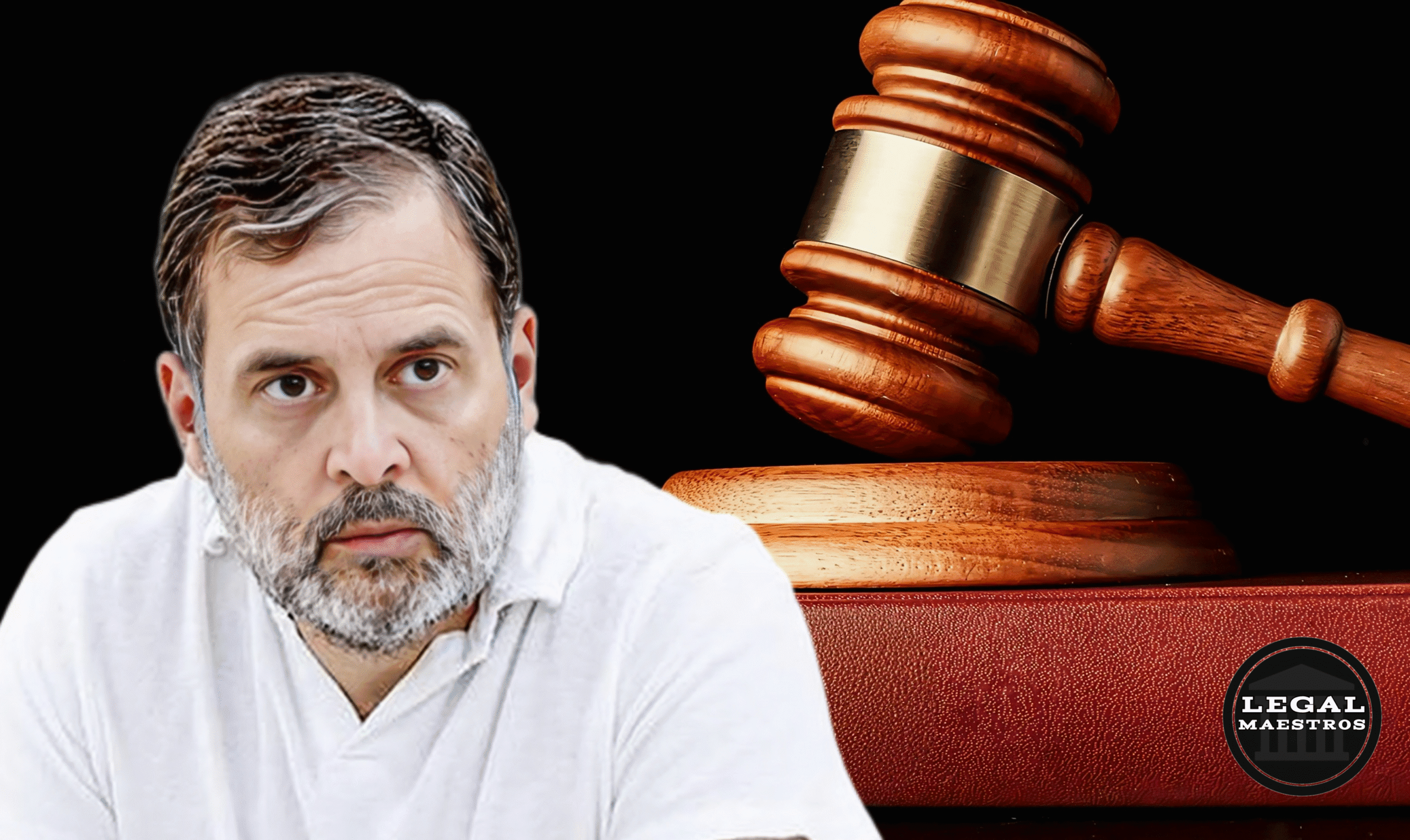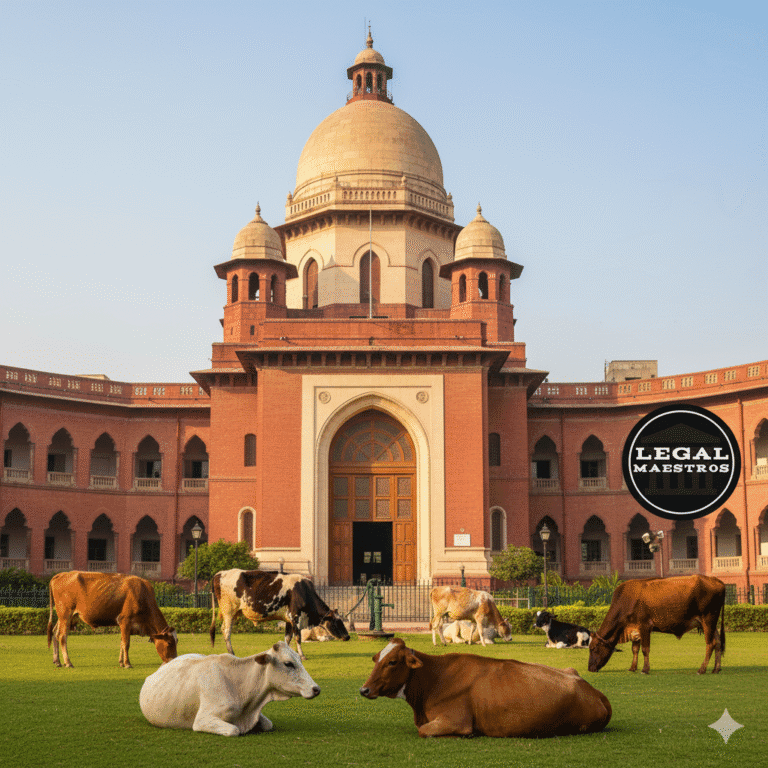
In establishing justice, striking the fine line between the right of the prosecution team to establish guilt and the most basic rights of an accused individual will always ride on top. In a recent case of Satyaki Savarkar Vs. Rahul Gandhi
deconstrues the constitutional safeguard against self-incrimination by carefully studying and restating why the same is an important barometer towards a fair trial. The case is an example of the limitations of discovery in criminal proceedings and this reinstates the fact that the burden of proof only lies with the complainant.
Facts of the case
This was an attack of Satyaki Savarkar who filed a complaint on a private complaint against Rahul Gandhi. The complainant had requested a copy of a book, which was quoted by the accused, Rahul Gandhi, in his speech of March 5, 2023.
For any queries or to publish an article or post or advertisement on our platform, do call at +91 6377460764 or email us at contact@legalmaestros.com.
According to the complainant; the book was a requirement so as to make the trial of the accused person take place under a fair environment and that the accused was attempting to push the case.
The accused on the other hand greatly opposed this application arguing that trial had not yet begun, thus defense could not be forced to bring forward any section of the case or even documents pending the commencement of the trial.
The accused stated that it is a responsibility of prove by the complainant to establish the case beyond reasonable doubt and the accused is innocent until proven guilty. The pre-mature publication of the defense material, the argument said, would amount to grave prejudice to the case of the accused to a fair trial as well as any defense and subordinates the constitutional right of the accused under Article 20(3) of the Constitution of India.
The defense went further to state that the defense has no counter obligation to provide anything to the complainant.
The analysis of the fundamental issues in the Court
Judicial Magistrate observed that the case still remained at a stage where the plea of the accused had to be recorded after hearing the arguments of both the sides. The court followed up on its statement that it is the duty of the complainant to establish the case beyond reasonable doubt.
One of the major contentious issues concerned the forceful provision of the accused with causing him or her to divulge his or her defense even before the commencement of trial. The court strongly held that it would amount to the violation of the fundamental right of the accused as it would force him to reveal his defense before the final decision.
The court highlighted the basic concept of presuming the innocence of an accused person until he is proved guilty. Granting the application of the complainant would massively affect the right of the accused to a fair trial and his or her chances of being able to defend the case readily.
The accused has no legal duty to produce anything on which the complainant can base his or her claim. The court observed that the accused person could raise any documents that were relevant to him or her, when giving his/her evidence as to his/her defense at the convenient phase of trial.
Dependence on Precedent to Secure Constitutional Shields
The court used authoritative cases in order to prove its judgement. An example of one such case included the following:
Rajesh T.K. and another vs. State of Kerala, 2023 Supreme (Online) (KER) 17341. In the present instance, Kerala High Court has said that the section 91 of the criminal procedure does not necessitate the need to produce document of an accused, and so constitutional safeguards against self-incrimination was upheld.
This precedence served the case of the accused in a direct manner; as he/she did not have a force to compel them to present the required book.
One more landmark case cited was Decided on December 14, 1964, State of Gujarat vs. Shyamlal Mohanlal Choksi and Manubhai. The Honble Court in this judgement has held that anything including document and material or any material which the accused person has been required to produce but was found to incriminate him or her would not be admissible in evidence.
Although admitting that, in that regard, Section 94(1) (its equivalent in the old criminal procedure code to the present Section 94 of BNSS) would not conflict with Article 20(3), the court involved in them did not any further pursue the constitutional issue and was content merely to construe Section 94 (1) in a limited fashion. The general rule that the accused cannot be forced to produce documents that can incriminate him was nonetheless a good point of reference to this court.
The Sacredness of Article 20(3) of The Indian Constitution
The center of the judgment of the court lies heavily on Article 20(3) of the Constitution of India. In this right, it is clearly outlined that, no citizen shall be forced to testify against himself or herself once he/she is accused of a crime.
The court emphasized that the documents the complainant was after was an incriminating one and was going to be used against the accused. To make the accused to present such material would be equivalent to making the accused to be a witness against himself and that would amount to a direct violation of this constitutional protection.
On the basis of the elaborate analysis made of the arguments brought forward and other judicial precedents, the Judicial Magistrate came to the conclusion that the accused could not be forcefully made to produce the document or book that the complainant had requested. The complainant application hence was denied.
This order supports the twin pillars of criminal jurisprudence in India, the fact that by law everyone is supposed to be innocent, only the prosecution has the burden of proving the case beyond reasonable doubt and more importantly the absolute right under Article 20(3) of the Constitution of the right against self incrimination.
The decision is an important message since it shows that procedural fairness and the guarantees of obtaining constitutional protections are crucial to a lawful process, and no party can be induced to offer evidence that might later be turned against them prior to the onset of a trial.







